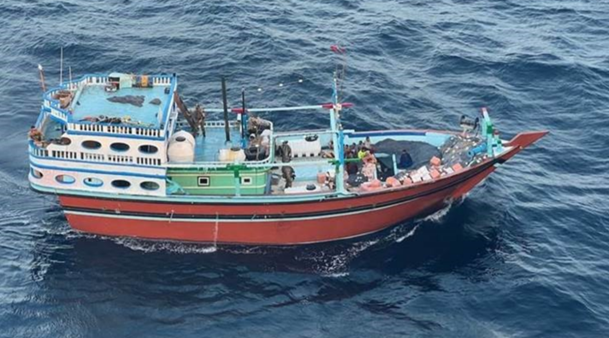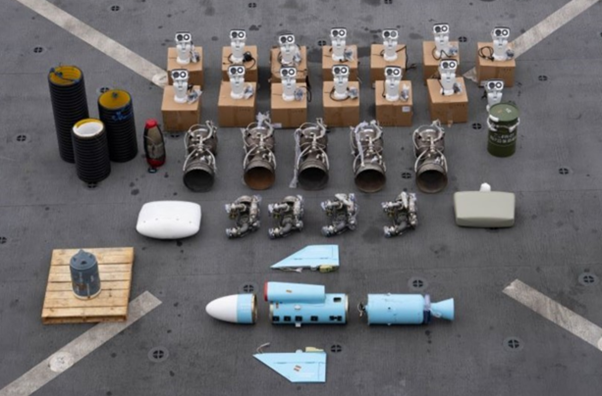
The United States Central Command (CENTCOM) on Tuesday reported seizing Iranian advanced conventional weapons bound for the Houthi group in Yemen.
The U.S. navy forces conducted on January 11 a night-time seizure of a dhow conducting illegal transport of advanced lethal aid from Iran to resupply Houthi forces in Yemen.
The weapons parts were intended to reach the Houthis to help them disrupt shipping, claims the US.
“U.S. Navy SEALs operating from USS LEWIS B PULLER (ESB 3), supported by helicopters and unmanned aerial vehicles (UAVs), executed a complex boarding of the dhow near the coast of Somalia in international waters of the Arabian Sea, seizing Iranian-made ballistic missile and cruise missiles components,” read the statement.
The U.S. claimed seizing “propulsion, guidance, and warheads for Houthi medium range ballistic missiles (MRBMs) and anti-ship cruise missiles (ASCMs), as well as air defense associated components.”
According to the CENTCOM’s analysis, the same weapons have been employed by the Houthis to attack mariners on international merchant ships transiting in the Red Sea.
It was pointed out that the incident constitutes “the first seizure of advanced Iranian-manufactured ballistic missile and cruise missile components by the U.S. Navy since November 2019.”
Two U.S. Navy SEALs previously reported as lost at sea were directly involved in this operation. “We are conducting an exhaustive search for our missing teammates,” said General Michael Erik Kurilla, USCENTCOM Commander.
The dhow was deemed unsafe and sunk by U.S. Navy forces. Disposition of the 14 dhow crewmembers is being determined in accordance with international law.
“It is clear that Iran continues shipment of advanced lethal aid to the Houthis. This is yet another example of how Iran actively sows instability throughout the region in direct violation of U.N Security Resolution 2216 and International law,” said General Michael Erik Kurilla, “We will continue to work with regional and international partners to expose and interdict these efforts, and ultimately to reestablish freedom of navigation.”



